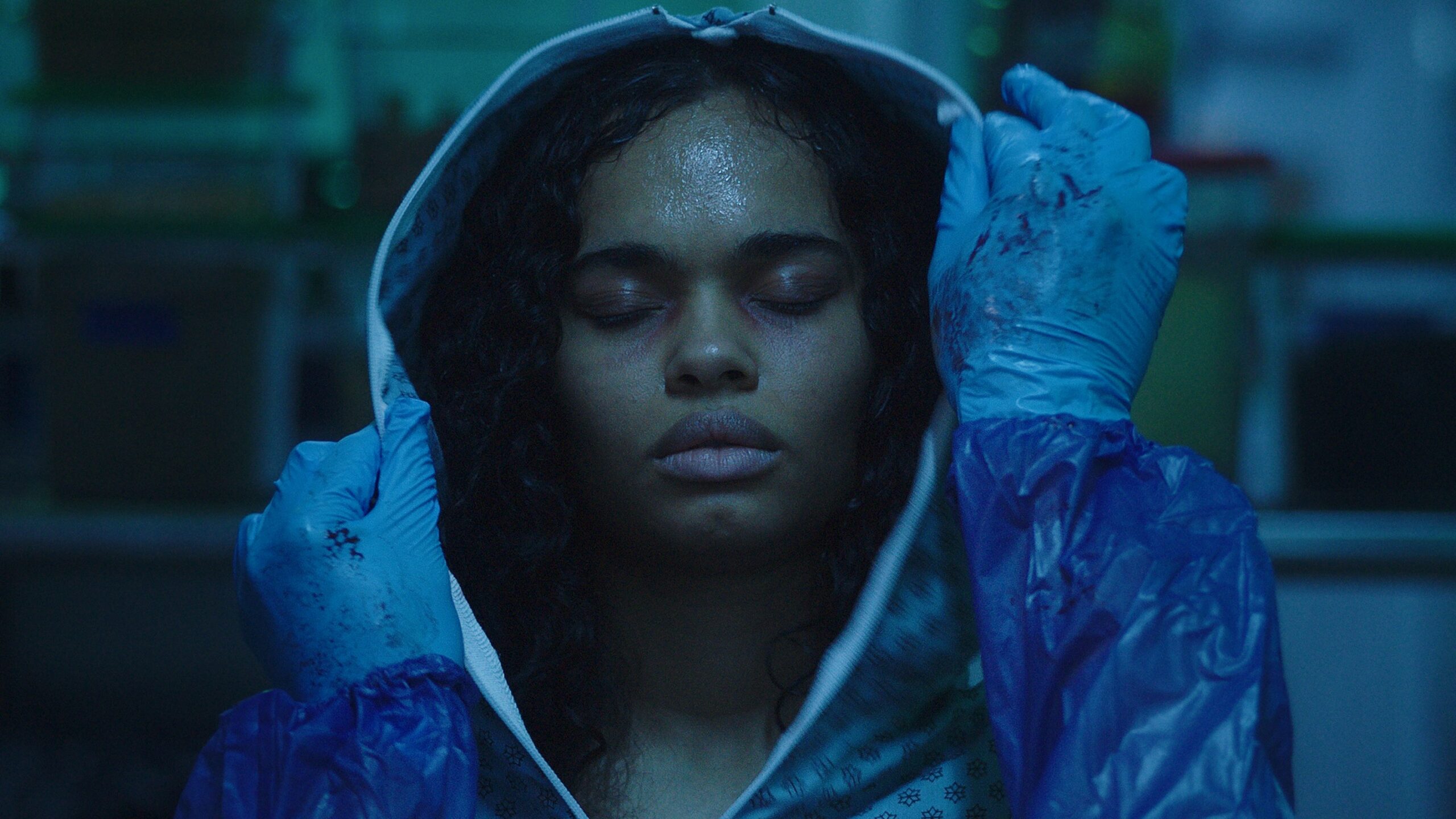LONG PORK
dir. Iris Dukatt

After scanning its title, I suspected that queer independent theatre and filmmaker Iris Dukatt’s latest offering, Long Pork, would be an entry into the ever-growing and wildly popular contemporary cannibal horror genre—films that often serve as meditations on the consuming force of feminine desire and the dire consequences that arise from attempting to suppress it, as patriarchal socialization demands, as seen in Yellowjackets (2021-present), Raw (2016), and Bones and All (2022).
The people-eaters in this bold and brutal 13-minute short, however, summon another cinematic canon that foregrounds the loss of autonomy as a stage for horror—the rape-revenge narrative. A far cry from the genre’s 1970s beginnings—often criticized for using titillating violence against women as an inciting incident rather than as an empathetic indictment of its perpetrators—Long Pork follows in the footsteps of fourth-wave feminist filmmakers who keep the atrocities off-screen, like Emerald Fennell’s Promising Young Woman (2020). If Fennell’s film responded to the insidious persistence of revenge porn and college rape culture in the 2020s, then Long Pork is a visceral answer to the overturning of Roe v. Wade—an abortion-rights revenge. Explicitly set in a “post-Roe America” where “theocracy reigns,” the film follows a renowned butcher who confronts the political predator responsible for her daughter’s death and exacts bloody revenge. Here, the horror of lost autonomy is no longer metaphorical, but literal—flesh and blood, for which our heroine demands retribution, pound for pound.
It’s hard to discuss body horror without invoking David Cronenberg, whose influence looms large over Long Pork with its grimy, jaundiced coloring and dilapidated clinical settings that drip with decay. The dialogue, too, delightfully unvarnished and unnervingly straightforward, heightens the film’s unsettling atmosphere. Lenda Hadley, of Game of Thrones fame, delivers a performance that is both sardonic and fiercely compelling, infusing her character with a complexity that lingers. The strobing edits featuring the spectral presence of the protagonist’s daughter are hauntingly effective, intertwining with the narrative in a way that feels both visceral and ethereal, allowing the audience to grasp the terror and grief underpinning the film without having physically witnessed the tragedy on screen.
The film’s true strength lies in its elegant simplicity. While many dystopian shorts fall into the trap of convoluted narratives that struggle to find their footing within a limited timeframe, Long Pork excels with a story that is as clean and precise as a carefully butchered cut of meat. The sets and performances are impeccably curated, with lighting and cinematography that create a polished, editorial aesthetic that belies a modest budget. Overall, Dukatt has established themself as an exciting new voice in queer horror, and their future works will undoubtedly be highly anticipated by audiences of this film. A refreshing challenge to a genre that can often rely on bloody spectacle to disguise an undercooked plot, Long Pork is (pardon the pun) truly well done.
Isabella Venutti is an Italian-Australian copywriter, journalist, and editor based in Naarm, Melbourne. With bylines in Refinery29, Polyester Zine, and Mixdown Magazine, as well as short fiction featured in Baby Teeth and Demure, her work often delves into the intricate dance between illusion, ego, and self-perception— particularly as it manifests within the arts.
